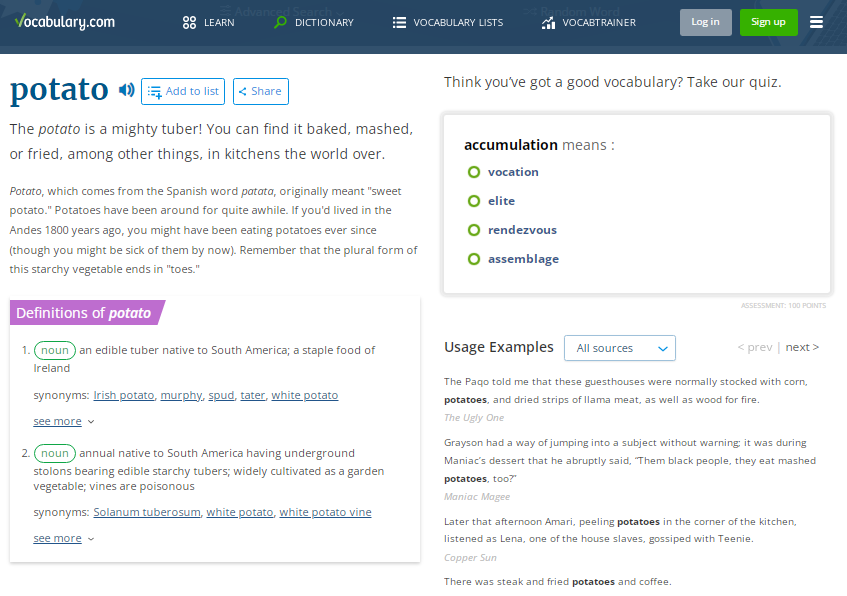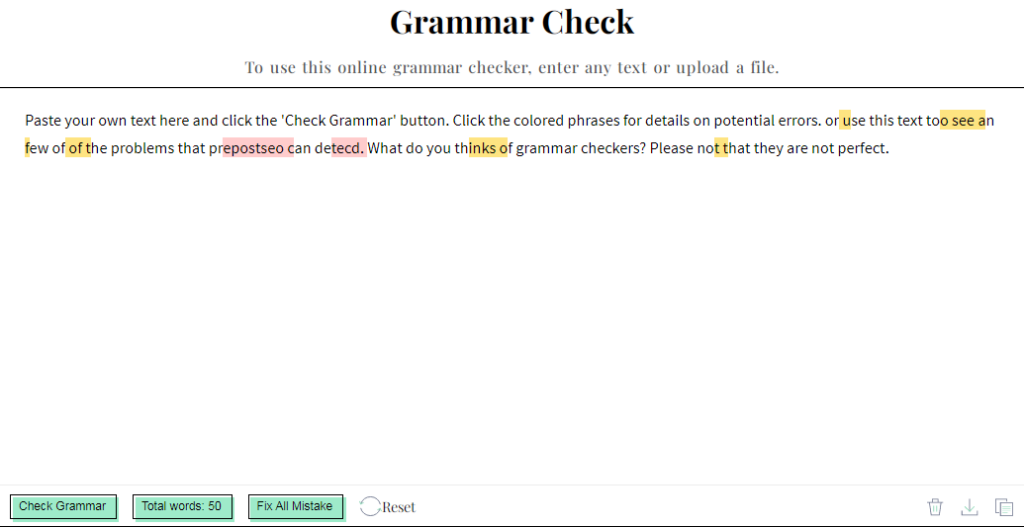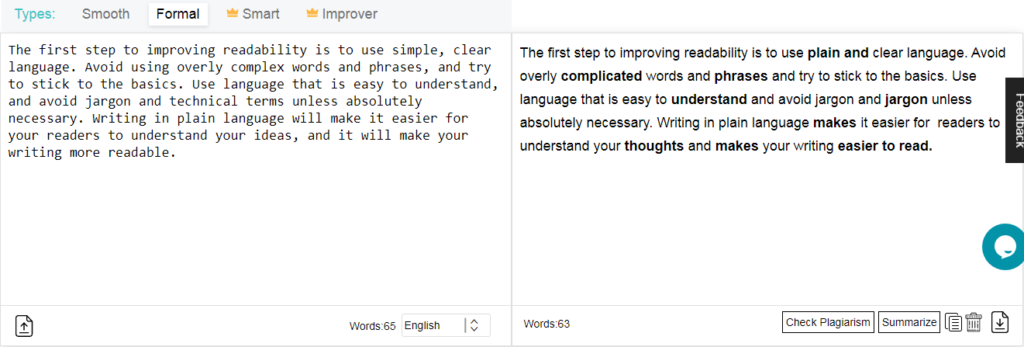

Ever since the 18th Century, when English became the international language, it has become essential for everyone to have a firm grip on it (both reading & writing) to communicate with people worldwide.

When it comes to reading, many people are good at it, thanks to the education system. But when it comes to writing English, people struggle due to the lack of knowledge about grammar, phrases, and other rules/regulations.
Writing English well is an art that requires practice, dedication, and attention to detail. Gathering all these and working on them together can be tough, so we’ve decided to bring them in one place in this post.
5 Tips That Will Take Your English Writing Skills To Next Level
1. Learn New Words:
If you want to take your English writing skills to the next level, you must improve your vocabulary by learning new words. A strong vocabulary is essential for effective communication. It helps you to express yourself better, understand what you read more accurately, and be able to communicate more efficiently with others. Here are some tips to help you improve your vocabulary.
Start by creating a list of words you’d like to incorporate into your writing. This could be a list of words related to a specific topic you’re writing about or words you heard or read somewhere and would like to use. Once you have your list, make a point of using these words whenever you write, whether it’s an essay, a blog post, or even a text message.
Another great way to improve your vocabulary is by using flashcards. Flashcards are an effective way to learn new words and their definitions. You can also quiz yourself with flashcards to test your knowledge.
You can also use online tools and resources to help you learn new words. There are many websites, such as Vocabulary that allow users to practice vocabulary and test themselves. These websites provide users with a complete history of words, synonyms, and other valuable information. To get a better understanding of this, see the attached picture below:

Overall, improving your vocabulary is essential for becoming a better writer. By following these tips and committing to a daily practice of learning new words, you will be able to take your English writing skills to the next level.
2. Read & Practice Writing:
Reading and writing are essential for improving your skills as a writer. It’s a great way to learn new writing techniques and styles. Try to find books and articles that interest you and cover topics that are relevant to your occupation. The more you read, the more you will get familiar with different writing styles. You can then master the ones that you like.
Once you have done a lot of reading, the next step is to start writing. It is important to set aside some time every day to practice writing. Start with short pieces, such as blog posts or short stories. As you become more confident, try tackling longer pieces such as essays or research papers. Writing regularly will help you learn the fundamentals of good writing and identify your strengths and weaknesses.
Reading and practice are the two most important elements of improving writing skills. If you are willing to put in the time and effort, you can take your English writing skills to the next level. So, grab a book and get to work!
3. Focus on Grammar and Spelling:
The importance of grammar and spelling in writing is often overlooked, but mastering these skills can take your writing to the next level.
Having strong grammar and spelling skills can greatly improve your writing. Grammar and spelling mistakes can be off-putting to readers and can make your writing appear careless or sloppy. People may not take your message seriously if they are distracted by errors.
First, brush up on the basics. Make sure you understand the rules of grammar and spelling, such as the difference between singular and plural nouns, the correct use of prepositions, and the correct spelling of commonly misspelled words. Understanding the rules of grammar and spelling will help you to identify and correct mistakes in your writing.
Another great way to improve your grammar and spelling is to get feedback from others. Have a friend or family member read your writing and point out errors. This can help you to identify your mistakes and learn from them.
Third, use a grammar checker. There are a number of free grammar-checking tools available online, such as Grammarcheck that can help you identify and correct any mistakes in your writing. Grammar-checking tools work by taking text from the user and then scanning it using advanced algorithms to highlight any grammar and spelling mistakes.

Focusing on grammar and spelling is essential to improving your writing. With practice and feedback, you can take your writing skills to the next level and create professional, error-free work.
4. Focus on Readability:
Readability is a measure of how easy it is to read and understand a text, and it is an important factor in determining the quality of your writing. With a few simple techniques, you can improve the readability of your writing and take your English writing skills to the next level.
The first step to improving readability is to use simple, clear language. Avoid using overly complex words and phrases, and try to stick to the basics. Use language that is easy to understand, and avoid jargon and technical terms unless absolutely necessary. Writing in plain language will make it easier for your readers to understand your ideas, and it will make your writing more readable.
There are multiple ways to make your writing easier to read. One is by manually replacing complex words/phrases with their simple synonyms. And the other one is to use a paraphrasing tool in order to make your content easier to read.
There are numerous paraphrasing tools available online, but one of the popular names in this field is the Paraphrasing tool by Editpad. This tool will rephrase the given content in a simpler manner while maintaining the original meaning and uniqueness of the content.

Another important factor in readability is sentence length. To make your writing easier to read, try to keep your sentences short and to the point. Long, complex sentences are difficult to follow, so break them up into shorter, simpler sentences. This will help your readers follow your ideas more easily and make your writing more readable.
Finally, you should pay attention to the structure of your writing. Make sure that each sentence flows into the next, and use transitions to connect your ideas. This will help your readers follow the logic of your arguments and make your writing more readable.
By using these simple techniques, you can improve the readability of your writing and take your English writing skills to the next level. With a little bit of practice and focus, you can make your work more enjoyable to read.
5. Make Your Writing Direct:
To make your writing direct and improve your English writing skills, try these tips.
First, identify and remove the passive voice. Passive voice is a style of writing in which the subject of the sentence is receiving the action. It often includes verbs such as “was,” “were,” and “had.”
For example, in the sentence below, the cake is the subject of the sentence, but it is receiving the action (being eaten).
“The cake was eaten by me,”
This sentence can be rewritten in active voice.
“I ate the cake.”
Using active voice when writing makes your sentences clearer and more concise. This is because you don’t have to repeat words or use extra words to indicate the action. It also allows you to make stronger statements and be more direct with your reader.
Next, use strong verbs. Strong verbs are words that more precisely convey the action that is taking place. For example, instead of the verb “walk,” you could use “stride” or “saunter.” Strong verbs make your writing more direct and can help to grab the attention of the reader.
Finally, use vivid language. Vivid language is a language that is descriptive and colorful. For example, instead of saying “the man was tall,” you could say, “the man towered over the crowd.” Adding vivid language to your writing can make it more engaging and interesting for readers.
Final Words:
If you are looking to take your English writing to the next level, these five tips can help you become a better and more confident writer. Make sure to read extensively, write regularly, use active voice, edit your work, and learn from feedback. With practice and dedication, you can become a more competent English writer.
- Available Courses
- Career Bundles73
- Animal care5
- Law8
- Quality Licence Scheme Endorsed111
- Teaching13
- Teaching & Academics Primary27
- Accounting & Finance Primary30
- Training3
- Design14
- IT & Software120
- Healthcare126
- Marketing31
- Health and Safety403
- Construction48
- Electronics25
- Hospitality22
- Health and Social Care219
- Child Psychology37
- Management377
- Business Skills268
- First Aid70
- Employability264
- Safeguarding75
- Food Hygiene103
- Personal Development1345
 Food Hygiene
Food Hygiene Health & Safety
Health & Safety Safeguarding
Safeguarding First Aid
First Aid Business Skills
Business Skills Personal Development
Personal Development












